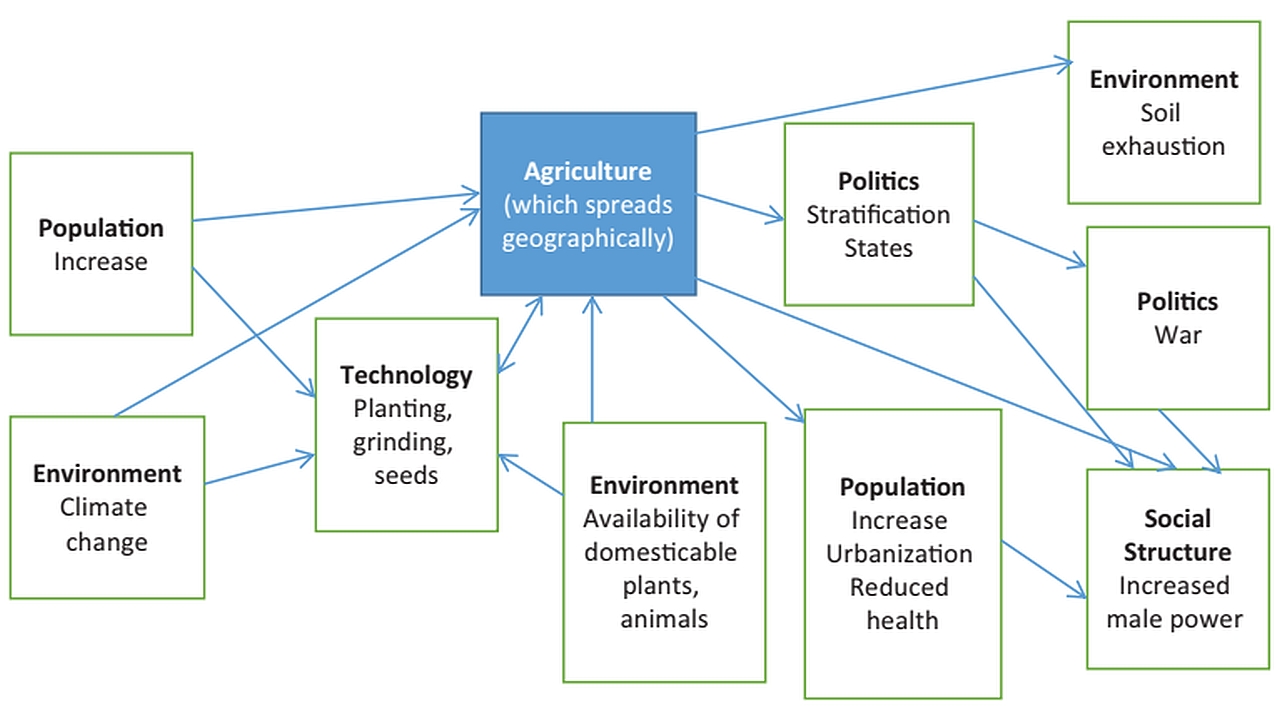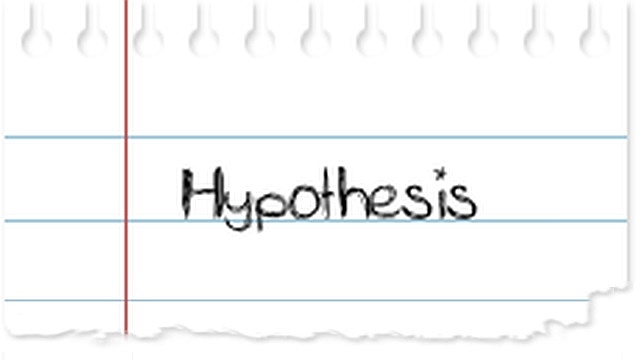
Can examining cross-disciplinary interactions illuminate unknown unknowns?
By Rick Szostak. Originally published on the Integration and Implementation Insights blog.
Unknown unknowns are challenges that we will face in future that we do not foresee today.
Here I argue that an important subgroup of unknown unknowns occurs when some phenomenon that we know a lot about has an unexpected effect on another phenomenon that we know a lot about, especially when there are few links between the two silos of knowledge. An example is unanticipated “interactions” between medications prescribed by medical practitioners from different specialities. Here I explore such disciplinary interactions more generally.
Disciplinary scholars focus on interactions among the phenomena that their discipline studies, but usually ignore interactions with phenomena studied in other disciplines. The academy as a whole thus devotes little attention to interactions among phenomena studied in different disciplines.
I have explored major historical transformations, which were generally surprises at the time and found they always involve interactions among the phenomena studied by multiple disciplines. In Making Sense of World History1 I provide flowcharts of dozens of such transformations, all involving cross-disciplinary interactions. Just two examples are:
- the development of agriculture which [as shown above] arguably reflected (at least) changes in population, environment, and technology and, in turn, had dramatic effects on environment, population, economy, politics, and social structure
- the expansion in the size of state bureaucracies over the last century which reflects political, economic, and technological developments, and has impacts on phenomena studied across the human sciences.
I argue that it is a general historical rule that major transformations involve cross-disciplinary interactions, and that this insight provides a powerful guide to understanding the future.
Further, I argue that most disciplines posit some system of stability among the phenomena they study2. Yet, these systems of stability are often disrupted by interactions with phenomena studied in other disciplines. For example, the market equilibria studied by economists can be disrupted by changes in weather or public tastes or political institutions.
Here we have a very important sort of unknown unknown: a system that generally exhibits stability – and thus we may not worry about it too much – is suddenly shocked into dramatic change by factors considered exogenous by disciplinary experts.
Although disciplinary scholars are aware that their systems can be shocked from outside, they devote far less attention to exogenous shocks than to theorizing systems of stability.
At other times, they may purposely ignore or downplay the possibility of cross-disciplinary interactions. For example, economists know that there was a Great Depression in 1929-1939, but happily develop macroeconomic theories that cannot explain it, and, as I showed in a 2005 paper, are hostile to explanations of the Great Depression that involve phenomena studied in other disciplines3.
The crux of my argument is that disciplinary silos generate unknown unknowns.
It seems logical to posit, therefore, that cross-disciplinary scholarship is a way of identifying and mitigating unknown unknowns. This opens important new directions for cross-disciplinary scholarship and raises a key question:
How can we best study cross-disciplinary interactions so as to know about unknown unknowns?
In your own work:
- Have you seen examples in your own discipline of a reluctance to embrace useful ideas from outside?
- Do you have instances where cross-disciplinary research uncovered unknown unknowns?
Biography
 |
Rick Szostak PhD is Professor and Chair of Economics at the University of Alberta, Canada. His research interests span the fields of economic history, world history, interdisciplinary studies, knowledge organization, and future studies. His book Making Sense of the Future will be published by Routledge in 2021. He coordinated the development of the About Interdisciplinary and Interdisciplinary General Education pages listed under resources on the Association for Interdisciplinary Studies website. |
Article source: Can examining cross-disciplinary interactions illuminate unknown unknowns? Republished by permission.
This blog post is part of a series on unknown unknowns as part of a collaboration between The Australian National University and Defence Science and Technology.
For all blog posts published in this series, visit the Integration and Implementation Insights blog.
Header image: Influences on and effects of agriculture (source: Szostak, 2021). The arrows on the left side capture how population pressure and climate change encouraged a gradual process of developing the technology for agriculture. This process depended on the availability of appropriate plants and animals (and rainfall etc.). The arrows on the right capture how agriculture then encouraged political consolidation and stratification, war, further population increases (but reduced health), and together these generated a change in gender relations. Soil exhaustion is possible.
References:
- Szostak, R. (2021). Making Sense of World History. Routledge: London, United Kingdom. DOI: 10.4324/9781003013518. ↩
- Szostak, R. (2017). Stability, Instability, and Interdisciplinarity. Issues in Interdisciplinary Studies, 35: 65-87. ↩
- Szostak, R. (2005). Evaluating the Historiography of the Great Depression: Explanation or Single-Theory Driven? Journal of Economic Methodology, 12: 1, 35-61. ↩



![Collaborating on Research by National Eye Institute [Flickr image]](https://realkm.com/wp-content/uploads/2018/07/9955278615_c5356cdffd_z.jpg)


Hi Rick, thank you for this valuable article. I very much agree with your proposition, based on my own experience of where research went beyond disciplinary silos and in doing so uncovered unknown unknowns. I’ve documented one such case study of this in the article Case Study: The dangers of information silos.
I then further explore the disciplinary silo issues that were the basis for the issue discussed in that case study in the follow-on article Case study: How polarized debates can be the result of rational deliberation, and how they can be resolved.
The second article includes discussion of approaches to bridging disciplinary boundaries from a 2019 paper.